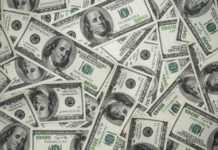tbsnews.net 15 February 2023
If the allegation is proven, Bangladesh will have to brace for multiple forms of penalties, according to commerce ministry officials and exporters
Quotas, sanctions and additional duties loom over garments exports to the United States, the leading importer, after it initiated a special review against Bangladesh for allegedly exporting counterfeit clothing of popular US and French brands.
The United States Trade Representative (USTR) started the Special 301 Review on IPR (intellectual property rights) Protection and Enforcement – which looks into the global state of IP protection and enforcement – after complaints of counterfeiting emerged against Bangladesh-made clothes, according to a document obtained by this newspaper.
In its primary rebuttal, the commerce ministry objected to the review, saying it wasn’t logical to do so without giving evidence.
If the allegation is proven, however, Bangladesh will have to brace for multiple forms of penalties, according to commerce ministry officials and exporters.
On 10 February, the US State Department informed Bangladesh about the review 301 and asked it to send its submission before midnight (Washington time) on 13 February.
Hafizur Rahman, director general of the WTO Cell of the Ministry of Commerce, who was present at the meeting, told The Business Standard that 15 days would be sought to send the detailed submission. Besides, there will be a description of the initiatives that Bangladesh has already taken to prevent counterfeiting.
This is the first time the US has decided to conduct such a review against any least-developed country (LDC).
Meanwhile, the AAFA has also said the Rapid Action Battalion and the Criminal Investigation Department of the Police have not prioritised IP (intellectual property) enforcement actions.
The AAFA has asked the US State Department to keep Bangladesh on a priority watch list.
Mohammad Hatem, executive president of the Bangladesh Knitwear Manufacturers and Exporters Association (BKMEA), who was also present in the meeting, said the US has decided to start a review against various countries, including China, the United Arab Emirates and Vietnam.
He said that the review could lead to quotas on garment exports and additional duties.
He said Bangladesh would investigate the allegations and take disciplinary action against the accused.
“The BGMEA and BKMEA will take a tough stance in this regard. We have never given discounts to anyone who has counterfeited, nor will we in the future,” he said.
The allegations
In its submission to the USTR, the AAFA said, “While being an important legitimate sourcing country for the industry, counterfeits from Bangladesh are being seized at an increasing rate globally as counterfeit production is growing. As one member shared, ‘…it remains impossible to conduct any form of IP enforcement in Bangladesh due to zero established IP policies’ with high levels of corruption exacerbating the situation. Thus AAFA recommends that Bangladesh be listed on USTR’s Priority Watch List.”
The AAFA also pointed out that in 2022, the group conducted 56 global seizures that contained counterfeit goods manufactured in Bangladesh, a 50% increase from 2021.
It also listed 12 countries where counterfeit goods sourced in Bangladesh were seized, including Australia, Italy, the UK, the US, Germany and Saudi Arabia.
“Out of the roughly 175,000 items seized in 2022 from across 17 raids in Malaysia and the Philippines, 100% of the goods were manufactured in Bangladesh,” it said.
The AAFA warned that “allowing Bangladesh to grow as a global counterfeit source will make residual impacts harder to undo on a grander scale.”
It identified 5,000 listings linked to counterfeit Bangladesh-sourced goods on online platforms such as Facebook, LinkedIn, Whatsapp, Lazda and Shopee, among others.
“While seizures from across the globe can be traced back to Bangladesh, the two law enforcement agencies that have the authority to conduct IP enforcement actions in Bangladesh – the Rapid Action Battalion (RAB) and the Bangladesh Police Criminal Investigation Department (CID) – do not prioritise IP enforcement action and suffer from corruption.”
Bangladesh’s response
As an LDC, Bangladesh has some flexibility in terms of intellectual property rights. Moreover, Bangladesh has implemented the Trademark Act, where counterfeiting is a punishable offence, the ministry will say in its official response, officials told The Business Standard.
It will also highlight such a practice was an offence under the Customs Act.
The ministry will concede that export consignments were not as thoroughly checked as import consignments, which may have resulted in the trade of some counterfeits.
In that case, it will argue that the customs authorities of the countries where counterfeit garments are imported are also responsible for stopping those.
The ministry officials further said it would be pointed out that it was a punishable offence to display counterfeit products under Bangladesh laws, including digital ones. Still, the responsibility of punishing those who import and sell counterfeit products in different countries lies with those countries concerned.
Bangladesh was preparing to fully implement the IP rights issue in phases by 2026. In this regard, there needs to be more capacity in Bangladesh and the assistance of various countries will be taken to meet it, it will emphasise.
Threading through trouble
Dr MA Razzaque, research director of the Policy Research Institute (PRI), told TBS that the US could impose sanctions through this review, increase tariffs or impose other penalties.
He said that IP issues were dominating the discourse around the world.
“The US-China technology war has already begun, which will have a negative impact on vulnerable countries like ours. The US is now much more aggressive on IPR issues. So Bangladesh should look into the complaints of AAFA and UNIFAB.”
He said due to the objections raised by the US, no judge can be appointed to the Appellate Division of the WTO for trade-related dispute settlement. Therefore, no solution will be found if the US imposes a decision unilaterally and it is challenged in the WTO’s Dispute Settle Court.
Shams Mahmud, chairman of the standing committee on foreign affairs of the Bangladesh Garment Manufacturers and Exporters Association (BGMEA), told TBS, “There is no opportunity for such irregularities by members of the BGMEA. They must submit documents during the export process, so they cannot export counterfeit goods. The BGMEA is very strict in this regard. Rather, some counterfeit products are coming from abroad.”
He said if any such violation occurred, it was only possible by those who weren’t members of the association.
On the condition of anonymity, a factory entrepreneur told TBS, “Sometimes there are some stocks left, which are sold in the open market. Some foreigners buy these products and sell them in their own country. Some products may go through this process,” he said, adding that the customs department should be held responsible for this.
He also said the export stoppage from Bangladesh amid order cancellations during the Covid-19 might have led to more stocks and, thus, more products reaching foreign destinations through black markets.









